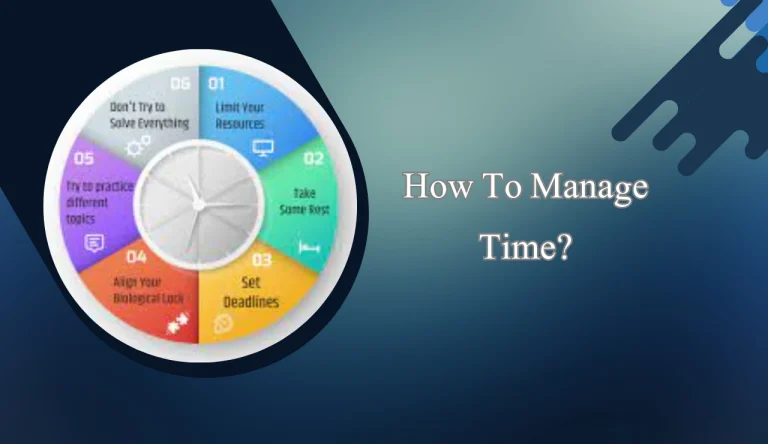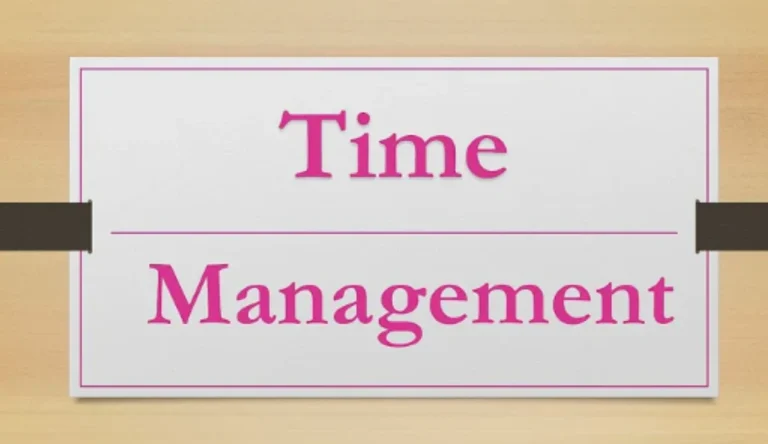Why Is Time Management Important In A Healthcare Setting
Do you ever feel like there just isn’t enough time in the day to get everything done? In a fast-paced healthcare setting, time is of the essence. The demands on your schedule can often seem overwhelming, but mastering the art of time management can be a game-changer.
From providing efficient patient care to ensuring effective communication and meeting deadlines, effective time management is crucial for success.
In this article, we will explore why is time management important in a healthcare setting. By prioritizing tasks and managing your workload effectively, you can improve patient outcomes, optimize resource allocation, and maintain a healthy work-life balance.
Additionally, we’ll delve into strategies for organizing your day and discuss how continuous improvement through better time management practices can lead to enhanced productivity and job satisfaction.
So let’s dive in and discover how harnessing the power of effective time management can transform your healthcare practice!
Key Takeaways
- Manage time in healthcare is crucial for improving patient outcomes and work-life balance.
- Effective time management reduces wait times and enhances patient satisfaction by allowing for timely interventions and treatments.
- Resource allocation based on skills and effective utilization of equipment are important aspects of time management in healthcare.
- Streamlining processes and workflow increases efficiency and productivity, improves communication, and reduces errors in a healthcare setting.
Efficient Patient Care
You need to efficiently manage your time in a healthcare setting to ensure that patients receive prompt and effective care. Efficient time management is crucial for maintaining patient satisfaction and reducing wait times.
When you effectively schedule appointments, prioritize tasks, and streamline processes, you can enhance the overall efficiency of patient care. By minimizing wait times, you demonstrate respect for your patients’ valuable time and contribute to their overall satisfaction with the healthcare experience.
Efficient time management allows healthcare professionals to allocate resources effectively, ensuring that patients receive timely interventions and treatments. It enables you to provide prompt attention to urgent cases while also attending to routine appointments efficiently. This not only enhances patient safety but also maximizes the number of patients who can be seen within a given timeframe.
Moreover, efficient time management helps prevent delays in diagnosis and treatment, which can lead to improved health outcomes for patients. By staying organized and adhering to schedules, you minimize the risk of unnecessary complications or worsening conditions due to delayed care.
Efficient time management is essential in a healthcare setting as it directly impacts patient satisfaction by reducing wait times and improving overall quality of care. Prioritizing tasks, scheduling appointments effectively, and streamlining workflows are all important aspects of managing time efficiently in order to deliver prompt and effective care.
Resource Allocation
In order to optimize staff and equipment utilization in a healthcare setting, it’s important to carefully allocate resources.
This involves ensuring that the right staff members are assigned to tasks based on their skills and abilities, and that equipment is used efficiently and effectively.
By streamlining processes and workflow, healthcare facilities can eliminate unnecessary steps or bottlenecks, leading to increased efficiency.
Lastly, maximizing efficiency and productivity involves identifying areas where improvements can be made, such as implementing technology solutions or providing additional training for staff members.
Optimizing Staff and Equipment Utilization
Maximizing the efficiency of your staff and equipment is crucial in a healthcare setting because it’s super fun to waste time and resources. Effective staff management ensures that you have the right number of personnel with the necessary skills and qualifications to meet patient needs. By carefully scheduling shifts, assigning tasks, and providing appropriate training, you can optimize staff utilization and minimize downtime.
This not only improves productivity but also boosts morale among team members. Similarly, equipment optimization plays a significant role in delivering quality healthcare services. Ensuring that your equipment is properly maintained, calibrated, and ready for use prevents unnecessary delays or breakdowns during critical moments.
Regular inspections, preventive maintenance schedules, and proper documentation help extend the lifespan of valuable medical devices while minimizing costly repairs or replacements. By prioritizing staff management and equipment optimization, you create an environment where healthcare professionals can work efficiently and effectively towards improving patient outcomes.
Streamlining Processes and Workflow
Streamlining processes and workflow is vital for enhancing efficiency and ensuring seamless operations, allowing you to deliver top-notch patient care while maximizing productivity. By improving communication and reducing bottlenecks, you can optimize the flow of tasks and information within a healthcare setting.
Efficient processes help eliminate unnecessary delays and ensure that everyone involved in patient care is on the same page. This enables quicker decision-making and reduces the chances of errors or miscommunication. By implementing effective communication strategies, such as regular team meetings or utilizing technology-based tools like electronic health records, you can improve collaboration between healthcare professionals.
Furthermore, streamlining processes helps identify areas where improvements can be made to reduce waste and increase productivity. By analyzing workflows, identifying bottlenecks, and implementing efficient protocols, you can save valuable time that can be redirected towards providing better patient care.
Overall, by focusing on streamlining processes and workflow in a healthcare setting, you can enhance communication between staff members while reducing inefficiencies, ultimately leading to improved patient outcomes.
Maximizing Efficiency and Productivity
To boost your productivity and efficiency, consider implementing technology-based tools like electronic health records (EHRs). These tools have been shown to decrease medication errors by 48%, making them a valuable addition to any healthcare setting.
EHRs streamline processes by providing real-time access to patient information, reducing the time spent searching for paper files or contacting other healthcare providers. By using EHRs, you can easily track and manage appointments, medications, and test results in one centralized system. This not only saves time but also improves accuracy and coordination of care.
Additionally, time tracking software can help you identify areas where you may be spending too much time or experiencing bottlenecks in workflow. By analyzing this data, you can make informed decisions about resource allocation and process improvements to maximize workplace productivity.
Meeting Deadlines
Meeting deadlines in a healthcare setting is crucial for ensuring efficient and timely patient care, as well as maintaining the overall productivity of the team.
In a fast-paced environment like healthcare, time management plays a vital role in providing quality services to patients. By meeting deadlines, you can improve productivity and ensure that patients receive the care they need promptly.
One way to meet deadlines effectively is by implementing time-saving techniques. These techniques involve prioritizing tasks based on urgency and importance, delegating responsibilities when appropriate, and minimizing distractions. By doing so, you can optimize your workflow and allocate sufficient time for each task without compromising quality.
Additionally, meeting deadlines demonstrates professionalism and reliability. It instills confidence in both patients and colleagues that you’re dedicated to providing excellent care. Furthermore, it allows for better coordination among team members, leading to improved communication and collaboration.
Meeting deadlines is essential in a healthcare setting as it improves productivity, saves time through effective techniques, and ensures timely patient care. By mastering time management skills, you can contribute to the overall success of your team while delivering exceptional healthcare services.
Work-Life Balance

In order to maintain a healthy work-life balance in a healthcare setting, it’s crucial to prioritize preventing burnout and stress.
By managing your time effectively and setting boundaries, you can avoid becoming overwhelmed and exhausted.
Additionally, promoting mental and physical well-being through self-care practices such as exercise, relaxation techniques, and seeking support when needed can greatly contribute to your overall job satisfaction and retention in the healthcare field.
Preventing Burnout and Stress
By effectively managing your time in a healthcare setting, you can greatly reduce the risk of burnout and stress. It’s crucial to prioritize self-care practices and implement stress management techniques to prevent burnout and maintain overall well-being.
Here are four strategies for preventing burnout and stress:
- Take breaks: Schedule regular breaks throughout your day to rest and recharge. Use this time to engage in activities that help you relax and rejuvenate.
- Set boundaries: Establish clear boundaries between work and personal life. Avoid taking on excessive workloads or working beyond your designated hours.
- Practice self-care: Engage in activities that promote physical, mental, and emotional well-being, such as exercise, meditation, or hobbies.
- Seek support: Reach out to colleagues or supervisors for assistance when needed. Building a supportive network can provide emotional support during challenging times.
By implementing these strategies, you can effectively manage your time while prioritizing your well-being, reducing the risk of burnout and stress in a healthcare setting.
Promoting Mental and Physical Well-being
Prioritizing your mental and physical well-being is like tending to a garden – just as you need to nourish and care for the plants to ensure their growth, you must also nurture your mind and body to flourish in your personal and professional life. In a healthcare setting, where stress levels can be high and burnout is common, promoting mental and physical well-being is crucial.
By raising mental health awareness among healthcare professionals, organizations can create an environment that supports emotional resilience and reduces the risk of burnout. Encouraging regular physical activity can also have numerous benefits, such as reducing stress levels, improving mood, increasing energy levels, and enhancing overall physical health.
Taking breaks during shifts to engage in activities like stretching or walking can help relieve tension and boost productivity. By prioritizing your mental health and incorporating physical activity into your routine, you can better cope with the demands of working in a healthcare setting while maintaining a healthy work-life balance.
| Mental Health Awareness | Physical Activity |
|---|---|
| – Reducing stigma surrounding mental health issues | – Incorporating exercise breaks during shifts |
| – Providing resources for counseling or therapy | – Encouraging staff to join fitness classes or sports teams |
| – Offering mindfulness training programs | – Creating walking paths within the healthcare facility |
Enhancing Job Satisfaction and Retention
To enhance your job satisfaction and retention, it’s essential to foster a positive work environment that values teamwork, recognizes accomplishments, and provides opportunities for growth and development.
Effective time management plays a crucial role in creating such an environment. When employees have the necessary tools and resources to manage their time efficiently, they can focus on their tasks without feeling overwhelmed or stressed. This boosts job engagement as individuals feel more in control of their workload and can prioritize tasks effectively.
Moreover, when employees are motivated by a sense of accomplishment due to efficient time management, they’re more likely to stay committed to their roles and remain engaged in their work. By promoting effective time management practices and supporting employee motivation, healthcare organizations can significantly enhance job satisfaction and increase employee retention rates.
Effective Communication
Efficiently engaging in effective communication enhances the synergy of a healthcare setting. Clear and concise communication is vital for improving patient outcomes and reducing medical errors.
In a fast-paced environment, proper communication ensures that crucial information is relayed accurately and timely to all team members involved in patient care. Effective communication allows healthcare professionals to collaborate efficiently, share critical updates, and coordinate interventions seamlessly. It helps prevent misunderstandings, promotes teamwork, and fosters a supportive work environment.
By actively listening, using appropriate language, and providing feedback when necessary, healthcare providers can establish trust and rapport with their colleagues and patients alike. Moreover, effective communication enables quick decision-making during emergencies or time-sensitive situations, leading to better patient care overall.
Investing in strong communication skills is essential for healthcare settings to operate smoothly while prioritizing patient safety and well-being.
Prioritization and Task Management

Ensuring effective prioritization and task management is crucial for healthcare professionals to deliver optimal care and create a seamless workflow that leaves no room for error. In a fast-paced healthcare setting, time prioritization allows you to allocate your time and resources efficiently.
Here are three key points to consider:
- Identify urgent tasks: Determine which tasks require immediate attention and address them promptly. This helps prevent delays in patient care or the completion of critical procedures.
- Delegate non-essential tasks: Recognize when you can delegate certain responsibilities to other members of the healthcare team. Delegating tasks allows you to focus on more complex or pressing matters, improving overall efficiency.
- Create a schedule: Developing a structured schedule helps you manage your time effectively throughout the day. Prioritize important tasks early on, allowing flexibility for unexpected emergencies or challenges that may arise.
By implementing these strategies, healthcare professionals can enhance their ability to provide timely and high-quality care while maintaining an organized and productive work environment.
Continuous Improvement
Improve your skills and workflow by consistently seeking ways to enhance patient care and streamline processes. Continuous improvement is a crucial aspect of time management in a healthcare setting. It involves regularly evaluating your practices, identifying areas for improvement, and implementing changes to optimize efficiency.
By continuously striving for better outcomes, you can provide higher quality care to patients while also maximizing your productivity.
Effective communication plays a vital role in continuous improvement. Regularly communicating with colleagues and superiors allows you to exchange ideas, share best practices, and learn from one another’s experiences. This collaboration fosters an environment of innovation and growth, where everyone is committed to finding better ways of doing things.
Remember, continuous improvement is not a one-time task but an ongoing process. Embrace the mindset of always looking for opportunities to improve, both individually and as part of a team. By making small adjustments over time, you can make significant strides towards achieving excellence in patient care delivery while efficiently managing your time.
Frequently Asked Questions
Conclusion
In conclusion, time management is crucial in a healthcare setting for several reasons.
It ensures efficient patient care, as medical professionals can prioritize tasks and avoid delays. Effective resource allocation allows for the optimum utilization of medical supplies and staff, leading to improved patient outcomes. Meeting deadlines ensures that treatments and procedures are performed in a timely manner, reducing the risk of complications.
Additionally, proper time management promotes work-life balance, allowing healthcare professionals to recharge and provide better care. Through effective communication and task prioritization, continuous improvement can be achieved in healthcare settings. Mastering this skill is essential for success in the fast-paced world of healthcare.






